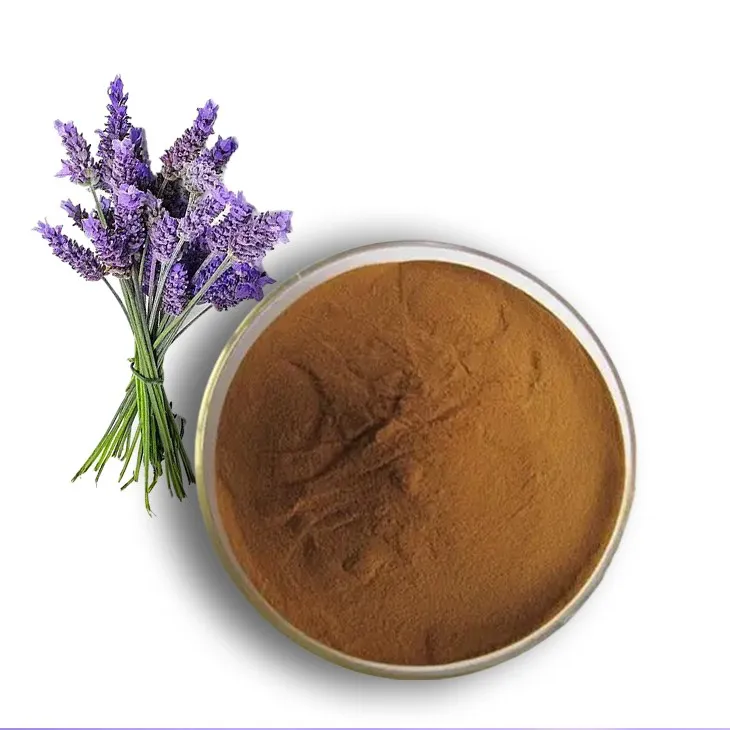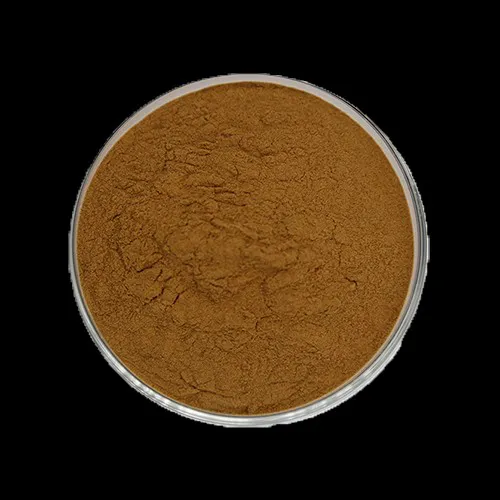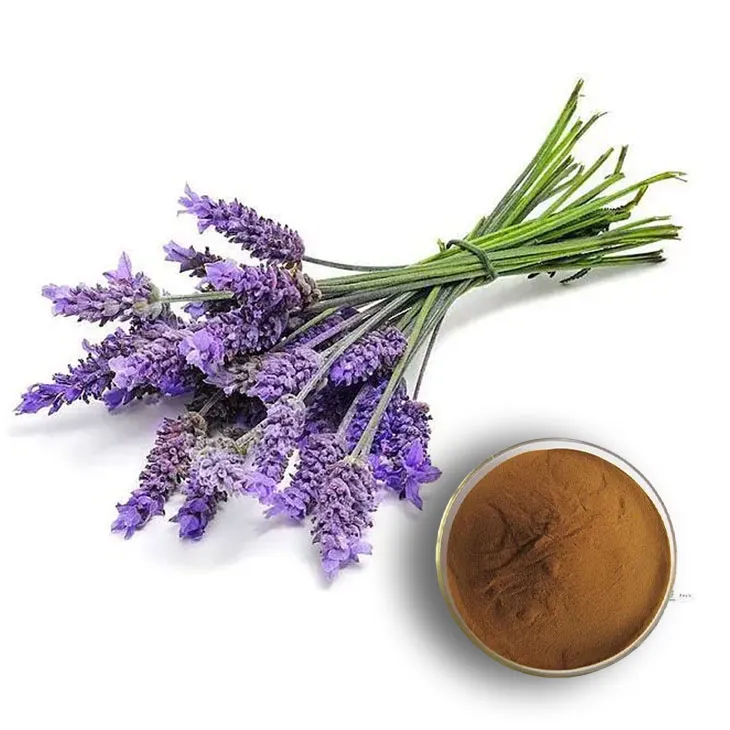- 0086-571-85302990
- sales@greenskybio.com
Lavender Extract: Should You Use It for Skin Care?
2024-11-13

Introduction
In the ever - evolving world of skincare, new ingredients are constantly emerging, and Lavender Extract has become one of the most talked - about components in recent times. With its pleasant aroma and a long history of use in various traditional remedies, it has found its way into a plethora of skincare products. But the question remains: is it really suitable for everyone's skin? This article aims to provide a comprehensive analysis of Lavender Extract in skincare, exploring both its potential benefits and possible drawbacks.

The Allure of Lavender
Lavender has been cherished for centuries for its various properties. Its sweet, floral scent is not only appealing but also has been associated with relaxation and stress relief. In the context of skincare, this allure extends beyond just the aroma.
Historical Use
Historically, lavender has been used in traditional medicine across different cultures. For example, the ancient Greeks used it for its medicinal properties, and it was also a popular ingredient in folk remedies in medieval Europe. This long - standing use indicates that there may be some merit to its application in skincare.

Potential Benefits of Lavender Extract in Skincare
Anti - Inflammatory Properties
One of the significant potential benefits of lavender extract in skincare is its anti - inflammatory nature. Inflammation is a common factor in many skin conditions, such as acne, eczema, and psoriasis.
Studies have suggested that certain compounds in lavender extract can help reduce inflammation at the cellular level. These compounds interact with the body's immune response mechanisms, calming down the overactive immune cells that contribute to inflammation. For instance, when applied topically to irritated skin, lavender extract may soothe redness and swelling, providing relief to those suffering from mild skin inflammations.
Antioxidant Qualities
Another important aspect of lavender extract is its antioxidant capabilities. Antioxidants play a crucial role in maintaining healthy skin by neutralizing free radicals. Free radicals are unstable molecules that can damage skin cells, leading to premature aging, wrinkles, and a dull complexion.
The antioxidants present in lavender extract, such as flavonoids and phenolic acids, can scavenge these free radicals, protecting the skin from oxidative stress. This protection can help keep the skin looking youthful and radiant, as it helps preserve the integrity of the skin's structure, including collagen and elastin fibers.
Soothing Irritated Skin
Lavender extract is often touted for its ability to soothe irritated skin. Whether it's due to environmental factors like sun exposure or harsh chemicals, or internal factors such as hormonal changes, skin irritation can be a common and uncomfortable issue.
The gentle nature of lavender extract makes it suitable for sensitive skin types. It can provide a cooling and calming effect, reducing the itchiness and discomfort associated with irritated skin. Many skincare products containing lavender extract are marketed towards those with sensitive or easily - irritated skin.
Combatting Signs of Aging
As mentioned earlier, the antioxidant properties of lavender extract contribute to its potential in combating signs of aging. By protecting the skin from free radical damage, it can help prevent the formation of wrinkles and fine lines.
In addition, some research suggests that lavender extract may also stimulate collagen production. Collagen is a key protein that gives the skin its firmness and elasticity. As we age, collagen production naturally declines, leading to sagging skin. If lavender extract can indeed boost collagen production, it could be a valuable ingredient in anti - aging skincare regimens.

Possible Drawbacks of Lavender Extract in Skincare
Allergic Reactions
Despite its many potential benefits, lavender extract may not be suitable for everyone. One of the main concerns is the potential for allergic reactions. Some individuals may be allergic to lavender, and using products containing its extract can lead to skin rashes, itching, and redness.
Allergic reactions to lavender can vary in severity, from mild irritation to more severe cases that may require medical attention. It's important for those with known allergies or sensitive skin to patch - test any new product containing lavender extract before using it on a larger area of the skin.
Hormonal Effects
There is some evidence to suggest that lavender may have hormonal effects. In particular, it has been associated with potential endocrine - disrupting properties in some studies.
While the evidence regarding its hormonal impact on the skin specifically is not conclusive, it is a factor that should be considered, especially for those with hormonal imbalances or concerns. For example, pregnant or breastfeeding women may need to be cautious when using products with lavender extract, as hormonal changes during these periods can make the skin more sensitive.
How to Incorporate Lavender Extract into Your Skincare Routine
If you've decided that lavender extract may be beneficial for your skin and you want to incorporate it into your skincare routine, there are several ways to do so.
Choosing the Right Product
There are a wide variety of skincare products available that contain lavender extract, including cleansers, toners, moisturizers, and serums.
- When choosing a cleanser with lavender extract, look for one that is suitable for your skin type. For oily skin, a foaming cleanser may be a good option, while for dry skin, a cream - based cleanser might be more appropriate.
- Toners with lavender extract can help balance the skin's pH and provide additional soothing benefits. Look for alcohol - free toners to avoid drying out the skin.
- Moisturizers with lavender extract can keep the skin hydrated while also taking advantage of its anti - inflammatory and antioxidant properties. For normal to dry skin, a thicker, more emollient moisturizer may be preferred, while those with oily skin may opt for a lighter, gel - based moisturizer.
- Serums are concentrated products that can deliver a high dose of lavender extract and other active ingredients. They are often used for targeted skincare concerns, such as anti - aging or reducing inflammation.
Patch - Testing
Before using any new product containing lavender extract on your face or body, it is essential to perform a patch - test. This involves applying a small amount of the product to a discreet area of skin, such as the inside of the forearm or behind the ear.
Wait for 24 - 48 hours to see if any adverse reactions occur, such as redness, itching, or swelling. If there are no negative reactions, it is likely safe to use the product on a larger area of the skin.
Conclusion
Lavender extract has both potential benefits and possible drawbacks when it comes to skincare. Its anti - inflammatory, antioxidant, and skin - soothing properties make it an appealing ingredient for many. However, the potential for allergic reactions and hormonal effects means that it may not be suitable for everyone.
By understanding all aspects of lavender extract, you can make an informed decision about whether to incorporate it into your skincare routine. Whether you choose to use products containing it or not, it's important to always listen to your skin and be aware of any changes or reactions that may occur.
FAQ:
Q1: What are the main benefits of lavender extract for skin care?
Lavender extract has anti - inflammatory and antioxidant qualities. The anti - inflammatory property can soothe irritated skin, and the antioxidant aspect may help combat signs of aging.
Q2: Are there any potential risks of using lavender extract on the skin?
Yes, there are potential risks. Some individuals may experience allergic reactions when using lavender extract on their skin.
Q3: How can I know if I'm allergic to lavender extract?
You can do a patch test. Apply a small amount of lavender - extract - containing product on a small area of your skin, like the inside of your forearm. Wait for 24 - 48 hours. If there is redness, itching, swelling or any other abnormal reaction, you may be allergic to it.
Q4: Can lavender extract be used for all skin types?
While lavender extract has certain benefits, not all skin types may tolerate it well. Those with sensitive skin or a history of allergies may need to be more cautious, especially considering the potential for allergic reactions.
Q5: How should lavender extract be incorporated into a skincare routine?
If you decide to use lavender extract in your skincare routine, start with products that have a relatively low concentration of it. You can use it in the form of creams, serums or oils. For example, you can apply a lavender - extract - based cream after cleansing and toning your face in the evening. However, always monitor your skin's reaction.
Related literature
- The Effects of Lavender Extract on Skin Health"
- "Lavender in Skincare: A Comprehensive Review"
- "Beneficial and Adverse Effects of Lavender Extract for Skin"
- ▶ Hesperidin
- ▶ citrus bioflavonoids
- ▶ plant extract
- ▶ lycopene
- ▶ Diosmin
- ▶ Grape seed extract
- ▶ Sea buckthorn Juice Powder
- ▶ Beetroot powder
- ▶ Hops Extract
- ▶ Artichoke Extract
- ▶ Reishi mushroom extract
- ▶ Astaxanthin
- ▶ Green Tea Extract
- ▶ Curcumin Extract
- ▶ Horse Chestnut Extract
- ▶ Other Problems
- ▶ Boswellia Serrata Extract
- ▶ Resveratrol Extract
- ▶ Marigold Extract
- ▶ Grape Leaf Extract
- ▶ blog3
- ▶ blog4
- ▶ blog5
-
Organic Tongkat Ali extract powder factory.
2024-11-13
-
How to make powder with ashwagandha extract.
2024-11-13
-
Rosehip extract manufacturers from China.
2024-11-13
-
The best cat's claw extract in nature.
2024-11-13
-
Chinese Dandelion Leaf Extract Suppliers.
2024-11-13
-
Green Tea Extract
2024-11-13
-
Mango flavored powder
2024-11-13
-
Beetroot Powder
2024-11-13
-
Mulberry Extract
2024-11-13
-
Resveratrol extract
2024-11-13
-
Boswellia Serrata Extract
2024-11-13
-
Chia Seed Powder
2024-11-13
-
Mangosteen extract powder
2024-11-13
-
Pine bark Extract Powder
2024-11-13
-
Chasteberry Extract
2024-11-13





















